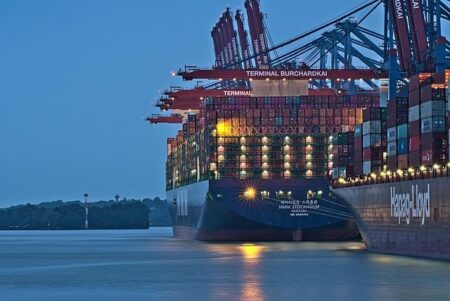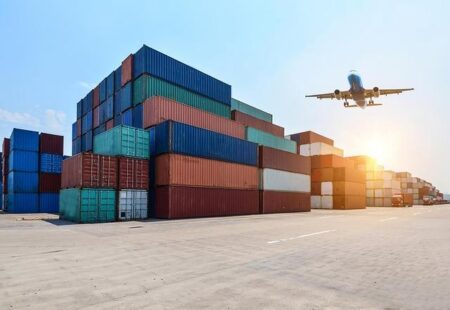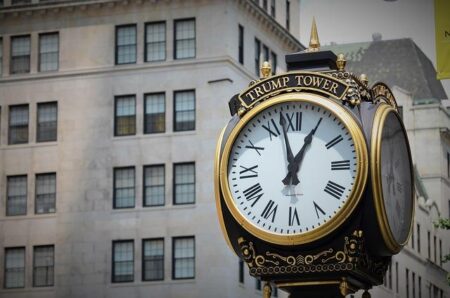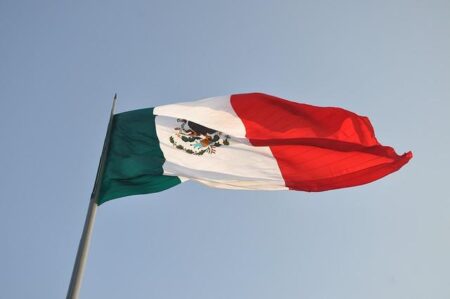One of India’s wealthiest states is raising a red flag, warning that U.S. tariffs introduced during the Trump era are inflicting “irreparable damage” on its economy. It urges immediate action to protect crucial trade and investment ties, The Economic Times reports
Browsing: international trade
Germany and Spain are leading the charge to push the EU-Mercosur trade deal across the finish line, undeterred by strong opposition from France. At the same time, Azerbaijan is closely monitoring the evolving dynamics of EU trade partnerships
Morocco has just shipped an impressive 1,950 tons of frozen raspberries to France, cementing its status as a key force in the European market. This remarkable export highlights the growing demand for Moroccan berries throughout France
Argentina’s recent export tax cut is poised to ignite a surge in agricultural exports and significantly boost farmers’ incomes. Experts predict this bold move will spark dynamic ripple effects throughout global commodity markets and transform regional trade landscapes
Brazil is threatening to abandon the Mercosur-EU trade deal as Italy and France push to delay its implementation, raising concerns over environmental and economic issues, Reuters reports
India has unveiled an exciting new trade agreement aimed at countering Mexico’s recent sharp tariff hikes on key Indian exports, Reuters reports. This bold move seeks to safeguard and boost the vital trade and economic ties between the two nations
France is taking the lead in blocking the EU-Mercosur trade deal, sounding the alarm over inadequate protections for its farmers. Paris demands stronger safeguards before it will approve the agreement
India’s goods exports skyrocketed in November, overcoming persistent U.S. tariffs and demonstrating strong demand and resilience across key industries. This remarkable surge underscores India’s growing clout in global trade, despite ongoing protectionist hurdles
China has just slashed tariffs on EU pork imports in a bold move designed to boost trade relations and ease global supply pressures, Bloomberg reports. This shift promises exciting new opportunities for European exporters eager to expand their reach
Global coal exports took an unexpected dip in 2025, driven primarily by a steep drop in China’s imports, Reuters reveals. This dramatic shift marks a pivotal moment in the coal market, reflecting changing energy demands and transformative policy decisions
France is now pushing to delay the EU-Mercosur trade deal, sparking urgent concerns over environmental safeguards and agricultural protections. This surprising move throws a major wrench into the ratification of the highly anticipated agreement
Argentina has dramatically cut export duties on key agricultural products, setting the stage to boost competitiveness and empower farmers amid soaring global demand, the government announced Tuesday. This bold move aims to ignite a surge in exports and drive robust economic growth
Argentina and the United States have taken thrilling steps forward in their talks on a Reciprocal Trade and Investment Agreement, paving the way to boost bilateral trade and strengthen economic partnerships, according to Dentons
Former US President Donald Trump and Brazilian President Luiz Inácio Lula da Silva recently joined forces over the phone to address urgent matters such as US tariffs on Brazil and potential sanctions, showcasing their mutual dedication to easing trade tensions and strengthening the bond between their nations
Mexico has unleashed tariffs soaring up to 50% on imports from China and other nations, a bold move designed to shield its domestic industries amid escalating trade tensions. Officials hail this as a major turning point in Mexico’s trade strategy
The EU and India are unlikely to finalize their eagerly awaited trade deal by year’s end, Bloomberg News reports, as ongoing disagreements and complex negotiations continue to hold up progress
America’s recent critical minerals agreements with Australia and Southeast Asia mark significant progress, but experts caution they fall short of what’s needed. Meanwhile, Africa’s vast mineral riches could be the game-changer in truly securing global supply chains
Canada’s trade balance surged back into surplus in September, fueled by robust export growth and a notable slowdown in imports, RBC reports. This impressive rebound ends the run of deficits and signals exciting momentum for the economy ahead
China’s growing economic might is transforming the global marketplace, igniting worries about trade imbalances, fragile supply chains, and strategic control that are fueling rising tensions worldwide
Canada’s ambassador to Washington has resigned amid stalled key trade talks with the US, raising alarm over the future of diplomatic ties and upcoming negotiations between the two nations, Anadolu Ajansı reports




















